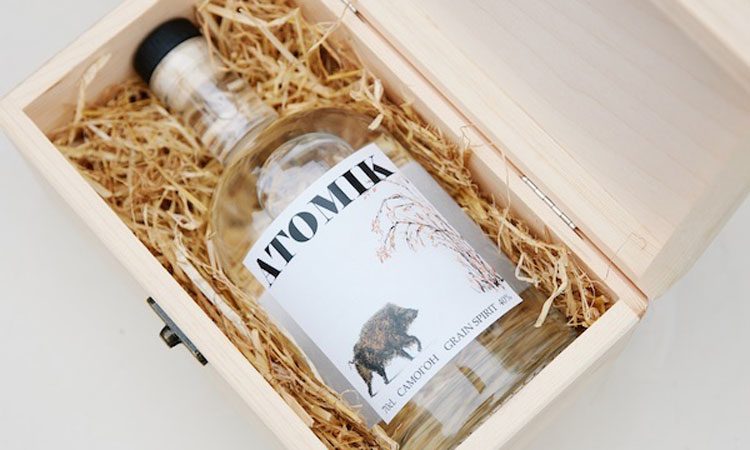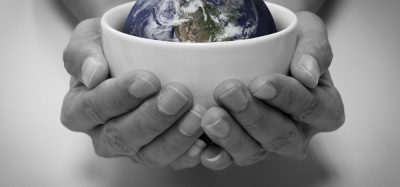Scientists produce vodka from crops in Chernobyl
- Like
- Digg
- Del
- Tumblr
- VKontakte
- Buffer
- Love This
- Odnoklassniki
- Meneame
- Blogger
- Amazon
- Yahoo Mail
- Gmail
- AOL
- Newsvine
- HackerNews
- Evernote
- MySpace
- Mail.ru
- Viadeo
- Line
- Comments
- Yummly
- SMS
- Viber
- Telegram
- Subscribe
- Skype
- Facebook Messenger
- Kakao
- LiveJournal
- Yammer
- Edgar
- Fintel
- Mix
- Instapaper
- Copy Link
Posted: 9 August 2019 | Rachael Harper (New Food Magazine) | No comments yet
Scientists want to produce the artisan vodka from Chernobyl and give 75 percent of profits back to the affected community.


Radioactive-free vodka, branded ATOMIK, produced from crops in Chernobyl’s abandoned zone has been brewed by a team of scientists to help the region recover economically.
In a new report, Professor Smith from the University of Portsmouth and colleagues in the UK and Ukraine who brewed the vodka, presented the results of a three-year research project into the transfer of radioactivity to crops grown in the Chernobyl Exclusion Zone. Professor Smith now wants to produce the artisan vodka made from grain grown near Chernobyl, and give 75 percent of the profits back to the affected community.
“I think this is the most important bottle of spirits in the world because it could help the economic recovery of communities living in and around the abandoned areas,” said Smith. “Many thousands of people are still living in the Zone of Obligatory Resettlement where new investment and use of agricultural land is still forbidden.”
The team found some radioactivity in the grain (strontium-90, which is slightly above the cautious Ukrainian limit of 20Bq/kg), but, because distilling reduces any impurities in the original grain, the only radioactivity the researchers could detect in the alcohol is natural Carbon-14 at the same level you would expect in any spirit drink.
They have diluted the distilled alcohol with mineral water from the deep aquifer in Chernobyl town, 10km south of the reactor, which has similar chemistry to groundwater in the Champagne region of France – and is also free from contamination.
“We don’t think the main Exclusion Zone should be extensively used for agriculture as it is now a wildlife reserve,” Smith continued. “But there are other areas where people live, but agriculture is still banned. 33 years on, many abandoned areas could now be used to grow crops safely without the need for distillation.
We aim to make a high-value product to support the economic development of areas outside the main Exclusion Zone where radiation isn’t now a significant health risk.”
The report has been positively received by the State Agency of Ukraine for Exclusion Zone Management. Smith and the team are now setting The Chernobyl Spirit Company to begin to produce and sell ATOMIK.
Related topics
Beverages, Contaminants, Environment, Food Safety, Product Development, Regulation & Legislation, Research & development, Trade & Economy









